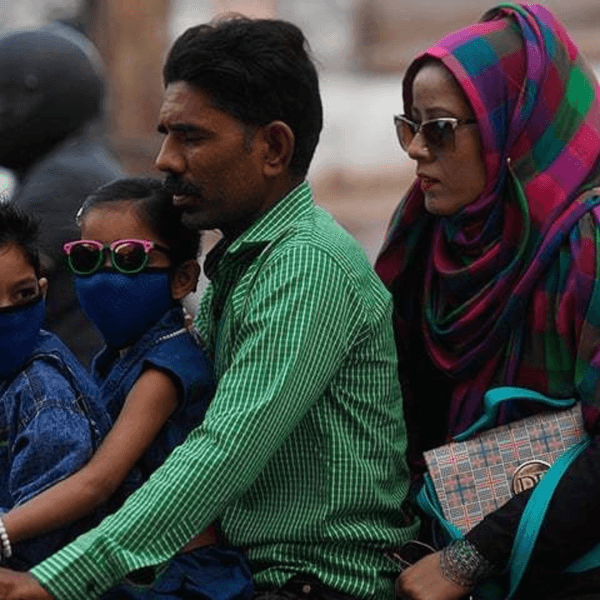Who is Maulana Masood Azhar, the militant leader claiming family losses in Indian airstrikes?
Maulana Azhar claims 10 family members and four close associates were killed in an Indian strike on a Bahawalpur mosque, warning Indian PM Modi to "not expect mercy now”

Murtaza Dar
Editor, Lahore
Murtaza is a journalist and digital strategist with over two decades of experience in the media industry, having held leadership positions in Pakistan’s leading media organizations

File photo of Maulana Masood Azhar in Islamabad.
Reuters
As tensions between India and Pakistan escalated following the deadly attack in Pahalgam, Indian fighter jets launched airstrikes across Pakistan early Wednesday, targeting several locations in Punjab.
Among the sites struck was the Markaz Subhan Allah in Bahawalpur -- described by India as the headquarters of the banned militant group Jaish-e-Mohammad (JeM), located about 100 km (62 miles) from the border.
JeM chief Maulana Masood Azhar has claimed that 10 of his family members and four close associates were killed in the mosque attack. The claim surfaced through a message attributed to Azhar, shared in a WhatsApp group believed to be operated by JeM and viewed by a Nukta correspondent.
According to the message, the airstrike killed Azhar’s elder sister and her husband, a nephew and his wife, another niece, and five children from his extended family. He also said a close aide, his mother, and two other associates died in the same strike.
Who is Maulana Masood Azhar?
Maulana Masood Azhar is a radical religious leader who supports separatist militants in Indian-administered Kashmir and appears on India’s most wanted list for alleged involvement in terrorism.
According to BBC Urdu, Azhar hails from a wealthy land-owning family in Bahawalpur, Punjab, where he was born in 1968. He received his Islamic education from Jamia Uloom-i-Islamia near Karachi, one of Pakistan’s most prominent religious seminaries.
He later taught there for several years, authored multiple religious books, and edited a magazine. His family says he was in India working for the magazine when he was arrested in 1994.
Maulana Azhar remained in Indian custody until December 1999, when he was released -- along with two others -- in exchange for passengers and crew of an Indian Airlines flight hijacked by militants and flown to Kandahar.
Pakistan banned JeM in 2002 after the group, along with Lashkar-e-Taiba, was blamed for the 2001 attack on India’s parliament, Reuters reported. According to the U.N. Security Council, JeM had ties to al Qaeda and the Taliban.
The group has claimed responsibility for numerous suicide bombings in Kashmir, where India has battled an armed insurgency since the late 1980s. While violence has decreased in recent years, JeM is still believed to be active.
BBC reports that JEM was officially banned in Pakistan soon after the Indian parliament attack. However, JeM has attacked Pakistani military targets and even made an attempt on former leader Pervez Musharraf's life in 2003, despite India's accusations that Pakistan harbors the group.
In 2019, the United Nations' 1267 Sanctions Committee designated Masood Azhar a global terrorist after China lifted its hold on the listing. The committee cited JeM’s ties to Al-Qaeda in its justification.
India had been pushing for the listing since 2016, but the effort gained momentum following the February 14 Pulwama attack on Indian paramilitary forces, which JeM claimed. Permanent UN Security Council members, including the US, UK, and France backed the resolution.
Maulana Azhar has largely withdrawn from the public eye, though occasional reports suggest he remains near Bahawalpur, where he runs a religious institution.







Comments
See what people are discussing